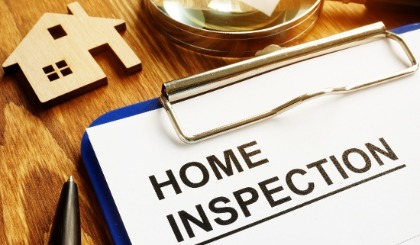What is a Purchase Agreement?
A purchase agreement is a contract between the buyer and seller of a home. It contains all the rules that apply to the sale. The contract starts with...
2 min read
 Twin Cities Habitat for Humanity
:
10:18 AM on May 3, 2022
Twin Cities Habitat for Humanity
:
10:18 AM on May 3, 2022

In today’s hot housing market it can be hard to know how much to offer on a home. There are stories everywhere about buyers paying tens of thousands of dollars over asking price, but how do you know if you’re paying too much? That’s where an appraiser comes in.
An appraiser is an unbiased professional who determines the value of a home. When buying or selling a home, an appraisal verifies that the sale price of the home is representative of market value. This ensures the homebuyer pays what the property is worth and helps to guide the mortgage lender on the appropriate amount to lend for the home.
The following explains what appraisers are looking for during home inspections, how the process is completed, and what a homebuyer needs to prepare for.
Appraisers do a lot more than just walk through houses. In order to determine the value of a home, a lot of data needs to be collected. Some items that contribute to value estimation include noting:
The process begins when your lender orders an appraisal. When you are buying a home, the lender will request an appraisal after an offer has been accepted and the purchase agreement signed. Next, the appraiser assesses the home by either conducting an on site visit or remote evaluation.
On-site inspections generally range from 15 to 30 minutes as the appraiser needs to walk through every room in the house and take photos. Virtual inspections are becoming more common with the inclusion of 360 degree cameras. Even with the technology, it is preferred to visit the site in person as photo representation is not always what it seems.
With photos gathered, the appraiser begins developing a report and valuation. The appraiser will review comparable properties, both structurally and monetarily, conduct a market analysis, and review public records on past values of the property. This data is entered into a grid which helps the appraiser determine the home’s value.
Once that data has been gathered, the report, called the Uniform Residential Appraisal Report, will undergo a series of reviews to ensure accuracy before going to the lender. As the homebuyer, you are entitled to a free copy of the report before the loan is closed. Read through this thoroughly and speak with your lender if you have any questions or believe the report is inaccurate.
Uniform Residential Appraisal Reports, and reports similar to them, are dense with information. Remember that the intention of getting an appraisal report is to protect you from overpaying on a home. It is the appraiser's job to present you with the facts about the property so you can make an informed decision.
Most home purchase agreements include an appraisal contingency which allows you to renegotiate or walk away from the deal if the appraisal comes back lower than expected. Recently, some buyers have been waving appraisals as a way to appear more attractive to the seller. While this can only occur when paying in cash, this is not recommended. Appraisals can, and often do, come back lower than the original value. If the valuation isn’t in line with your expectations and you have a contingency in place, you can always back out or try to negotiate.
Remember, home appraisers are independent professionals who do their best to come up with an objective property value based on data. That means other interested parties, including the bank and the real estate agents, do not have influence over the result. While the thought of an appraisal is a little scary, make sure your purchase agreement contains an appraisal contingency so you can back out of a deal if need be.
Your gift unlocks bright futures! Donate now to create, preserve, and promote affordable homeownership in the Twin Cities.

A purchase agreement is a contract between the buyer and seller of a home. It contains all the rules that apply to the sale. The contract starts with...

You may be familiar with Twin Cities Habitat for Humanity's Homeownership Program. The program is designed to help first-time homebuyers achieve...

A down payment is an amount you pay in cash “up front” when buying a home. A down payment is not part of your mortgage loan. A bigger down payment...